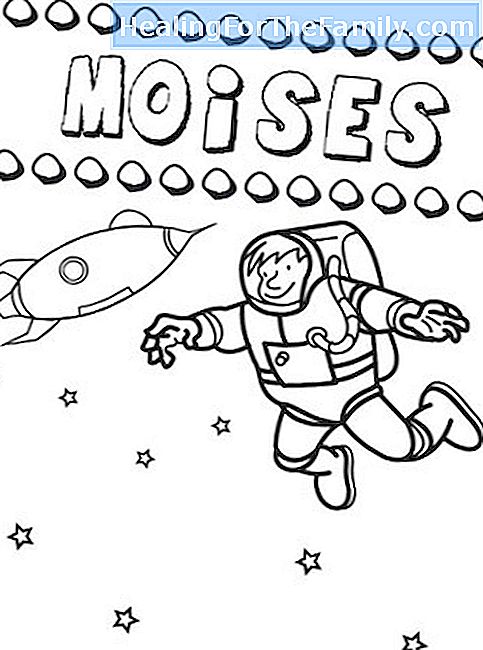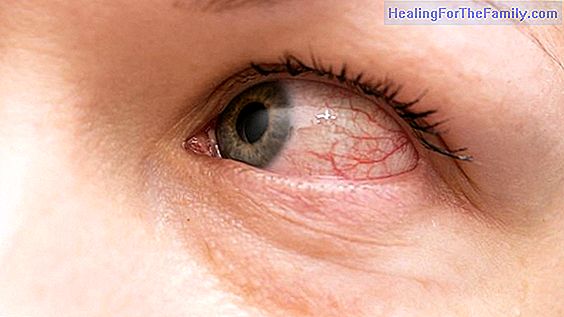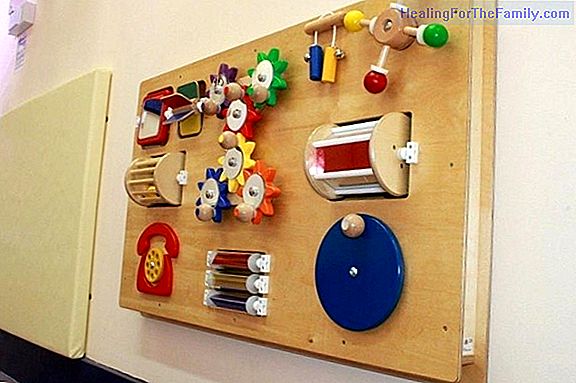What to do if the baby or child has otitis
Otitis is an inflammation of the middle ear that occurs frequently in children who have accumulated mucus as a result of a cold. It is usually preceded by a cold, flu or any other condition of the upper respiratory tract that runs with mucus. The Doctor Gracia Aránguez , D.R.L. member of the Expert
Otitis is an inflammation of the middle ear that occurs frequently in children who have accumulated mucus as a result of a cold. It is usually preceded by a cold, flu or any other condition of the upper respiratory tract that runs with mucus.
TheDoctor Gracia Aránguez, D.R.L. member of the Expert Committee of the Early Detection of Hearing Loss in newborns of the Community of Madrid. Coordinator of this program and the cochlear implant program at the General University Hospital Gregorio Marañón, tells us about childhood otitis and how this condition can cause hearing problems in babies and children.
What is childhood otitis and how to treat it

1. What is childhood otitis?
Infantile otitis is that inflammation of the ear that can sometimes ooze and sometimes causes hearing loss and sometimes the discharge of oozing, the ear hurts when it starts to accumulate mucus in the ear so we know that there is otitis that cause pain and the ear begins to fester and stops hurting but that parents worry that again and again that happens again, then those are the forms of otitis that we should be more exaggerated in the treatment or care of our son.
2. At what age does childhood otitis begin to affect?
Childhood otitis usually affects at an early stage, in the preschool stage I would say, when the child begins to go to the nursery, in that first stage and once the immunity of the mother is lost, she is in contact with other children that at her Sometimes they have small infections and that direct contact with other children makes it easier for you to have these otitis so often.
3. What can parents do to prevent otitis?
To prevent otitis in children, parents always have to be careful with hygiene and food. It is important to give a rich and varied diet especially with vitamin C which is what goes in the fruits, it is a normal diet every day. Then hygiene is very important in children. Having the nose uncovered, not having snot on the nose, taking the nails very well cut because the child sometimes bothers the ear, it is touched and that little bit of mucus that has the ear can be over infected with the germs that are underneath of the nails. That is to say, that all hygiene in a child in the field of respiratory, hands, everything is committed and we all have to be careful.
4. When can a cold cause a childhood otitis?
A cold does not always have to cause a childhood otitis, the respiratory tract has a mucosa that continues with the ear tube and sometimes for that continuity we can have an otitis but if we are cautious and we stop that cold firsthand always have to continue with that otitis. Then we will have to give him his abundant liquids, his diet rich in vitamins, we will have to clean those nostrils very well, that the child does not have mucus continuously, and we will have to give him that varied diet and make him swallow continuously to facilitate the drainage through the tube of mucus that can accumulate and that is not followed later in a middle-acute otitis.
5. What consequences can otitis have on a child?
The otitis in a child if we treat it well and early does not have to have any impact. If we do not treat otitis, if we do not put the right measures we can cause hearing loss, and this leads to an alteration of language and even learning. A child must be taken to the best possible conditions for learning naturally. Hearing is something that we let in naturally, we are hearing naturally. We do not have to strain to hear, but if a child has a hearing loss due to otitis, he has to pay more attention, the child is incapable and that leads to a learning delay. Sometimes they are those children who tell us at school because they seem distracted, because they do not attend and what they really have is serous otitis to the best of the base that is preventing them from hearing well and the child stops paying attention, because he does not know well, because he is bored in class and it is a consequence of having an otitis behind him.
6. How can parents avoid discomfort in the baby's ear on the plane?
When a father travels with a baby on the plane, he should make sure that when the plane is going up and especially when going down, the child starts operating the ear canal. When we swallow the ear horn is opened and the pressures are equalized, so if when we go with the baby we put a bottle, a little water, even in very small children if the breast is necessary for him to suck that can make it easier for him to make that pressure game through the trunk and do not have pain, because sometimes the baby starts to cry when we are on a flight and we do not know what is due, because many times it is because that pressure game in children is more difficult and we should facilitate it in this way.
7. How can parents know if otitis causes hearing problems in the child?
If we have heard before how a child has evolved and how it has been and parents have noticed that at some point it seems that hearing loss is not continuously because an ear with otitis serous hearing is not lost continuously, when a child has a problem of hearing loss more important if, but it is fluctuating, it seems that one day the child treats me better another day worse and you suspect that your child may have otitis, what we call a serous otitis that is mucus in the hatred for malfunction of the tube that is most common in a child because of its anatomical disposition, because what we have to do is to ensure that small sips Swallow as much as possible to facilitate that opening of the tube and notice that feeling of relief. If we see that the child after swallowing for a while, after the swallows is more reactive to the sound, this much better, it is very possible that it is because behind has that malfunction of the ear tube that leads to accumulate mucus inside the ear.












